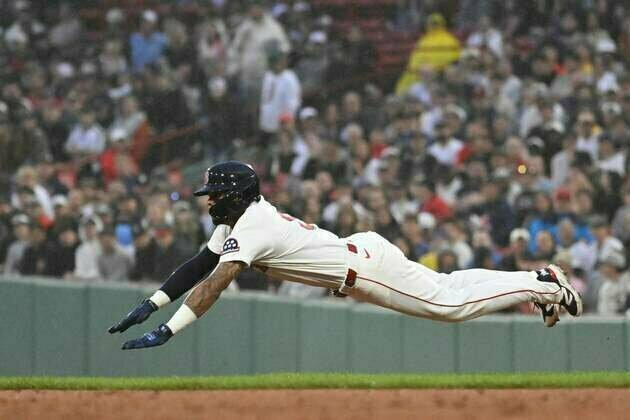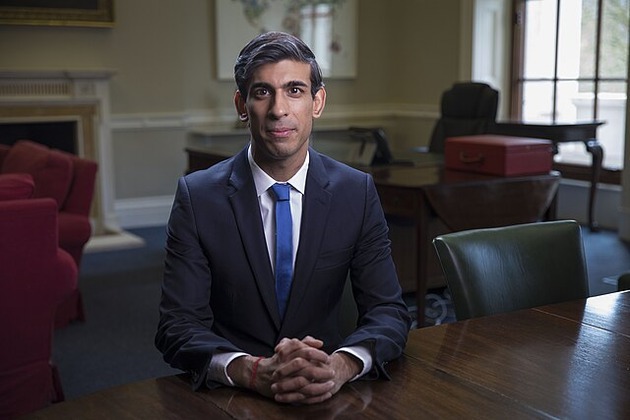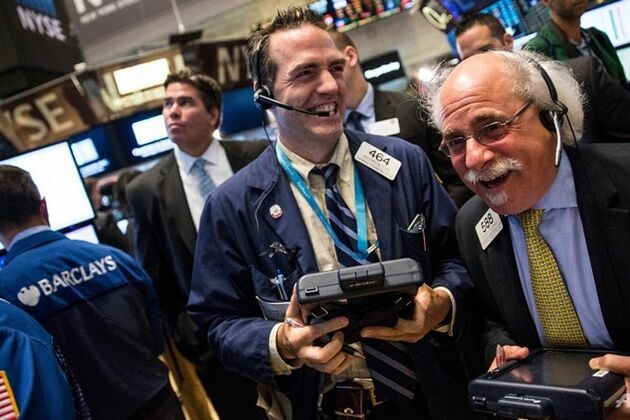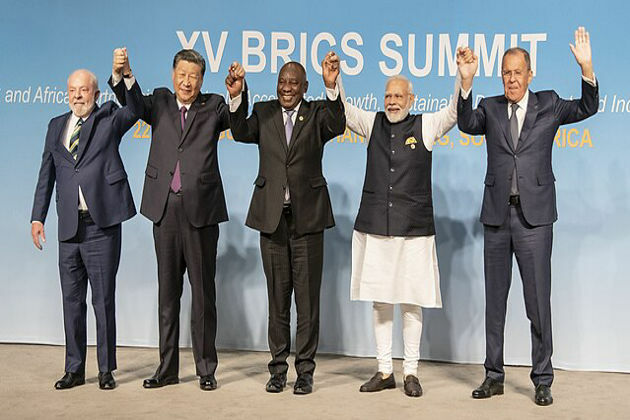How racism functions and shifts during the COVID-19 pandemic
The Conversation
01 Jul 2020, 00:09 GMT+10
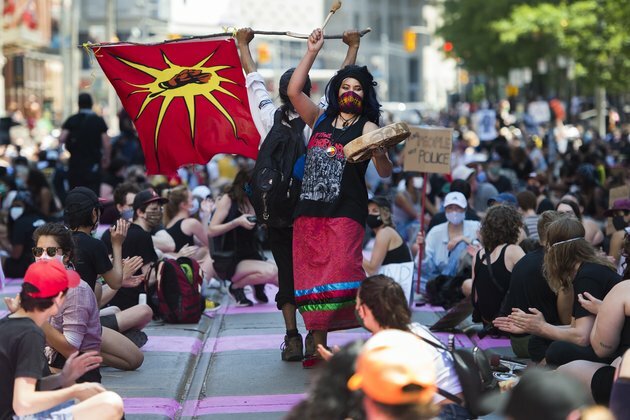
Imagine putting on a pair of kaleidoscope glasses: now look through them to see the myriad and fractured ways racism is playing out in Canada today.
The COVID-19 pandemic has intensified public attention to the unequal vulnerability of Indigenous and Black people and amplified other racialized inequalities inherent in society: from exposing exploitable labour in the front lines to inadequate care and resources.
Some argue that Canada doesn't have a problem with racism. Others vigorously demonstrate the systemic and insidious effects of structural and everyday racism. Still others want to study the issue, call witnesses to verify that systemic racism exists. That was the take of the Bloc Quebecois, which resulted in accusations of racism and the expulsion of NDP Leader Jagmeet Singh from the House of Commons.
How much further study is required? How many witnesses need to be called to establish the reality of racism and the violence it authorizes?
As someone active in Canadian critical race studies for over three decades, I wrote Discourses of Denial to demonstrate the entrenched denial around racism that is often camouflaged under the veneer of Canadian politeness and a token celebration of diversity.
More than a decade later, governments and institutions at all levels continue to deny the reality of racism. When acknowledged, the talk shifts quickly to managing diversity or tokenizing difference.
Naming and evading racism
Inequalities are structured in dominance, as British cultural theorist Stuart Hall explained in a 1980 essay. They manifest in what peace researcher Johan Galtung described as structural violence.
Structurally embedded racism is made possible by power. Power's enactment of racist policies and practices is mediated by everyday norms, values, attitudes and habits that cognitively coalesce in the form of stereotypes.
Yet, the "systemic" nature of racism is perplexing to politicians like Quebec Premier Francois Legault, who continues to deny its existence in Quebec. In his view:
To this, the social democrat Quebec Solidaire co-spokesperson Manon Masse countered:
Different issues underpin this denial. First, it assigns racism to an abstract system and thus evades the agency of racists. Second, it suggests that racism is in the air - much like the coronavirus - and we just have to fight it. Third, it implies that racists are the minority, perhaps some ignorant folks out there. This doesn't account for systemic racism within institutions like the police or academia or the proliferation of far right racist groups in Canada. Fourth, it erases the histories of racialized groups and the changing permutations of racism as it shifts according to social and political conditions.
Racism as deep structure
The timing of this latest denial of systemic racism is striking. It is part of the systemic nature of the white gaze. This gaze that turns the wheel of the kaleidoscope, shifting our focus from one frame to another, without reflecting the reality of a hierarchical society.
Pre-pandemic, the threat to society was crafted in the language of a war on terror (and before that: the war on poverty, and war on drugs, etc.). In that war, the quintessential enemy are the Muslims. Today, the tendency would be to deny this. However, the reality of Bill 21 in Quebec, not to mention the escalating Islamophobia, contests such denial.
In the background, percolating through all these decades if not centuries, has been anti-Indigenous and anti-Black racism, both pillars of a colonial settler society anchored in white supremacy.
Shifting frames
The pandemic ushered kaleidoscopic frames mediated by a white gaze.
First in the public limelight was anti-Asian racism, partly sparked by the rogue MP Derek Sloan who accused Chief Public Health Officer of Canada Theresa Tam of having divided if not dubious motives. He asked, "Does she work for Canada or for China?" with a caption on his video that read, "Dr. Tam must go!"
The stereotype of the diseased Asian body persists. It is part of the constructed threat of a "yellow peril."
Read more: Anti-Asian racism during coronavirus: How the language of disease produces hate and violence
A recent Angus Reid survey reveals that "almost one-third of Chinese Canadians report being physically attacked during COVID-19." In Montreal, documentation collected by law student Lilly Maya Wang helped to pass a city council motion condemning racism against Asians.
Read more: Dear white people, wake up: Canada is racist
With the murder of George Floyd and Regis Korchinski-Paquet, the kaleidoscopic lens shifted to Black bodies and police violence. Scholars have been arguing about this connection for decades. And the Black Lives Matter movement has continuously struggled to keep the issue in the public limelight.
Recently, the gaze is shifting back to violence against Indigenous peoples in Canada with the terrible revelation of the RCMP assault on Chief Allan Adam.
Racism is a system of violence
What does racism as a form of violence accomplish and for whom? Racism functions in the interests of power by maintaining a hierarchy. Here the colonial framework is highly relevant.
Read more: Election shows Canadians still don't understand what it means to be racist
The colonizers maintained power by subjugating racialized groups in different ways. At the bottom, were those considered dispossessed (Indigenous) and disposable (Black slaves), and in between, were the classic middlemen minorities (Brown, Asian peoples). Sandwiched in between, Brown people then become the buffer zone between those at the bottom and those at the top, and subject to different forms of violence.
While fighting racism, we cannot fall into the trap of an "Olympics of oppression" that pits one group against another. We must remember the specific historical conditions and lived realities of different racialized groups.
Structural racism makes the white gaze invisible. Whiteness continues to be the powerful backdrop against which Indigenous, Black and people of colour stand out as demanding minorities making unverifiable and highly subjective truth claims. Hence, the need for the constant proof from inquiries, reports, panels and commissions.
Author: Yasmin Jiwani - Professor of Communication Studies; Research Chair on Intersectionality, Violence and Resistance, Concordia University 
 Share
Share
 Tweet
Tweet
 Share
Share
 Flip
Flip
 Email
Email
Watch latest videos
Subscribe and Follow
Get a daily dose of San Jose Sun news through our daily email, its complimentary and keeps you fully up to date with world and business news as well.
News RELEASES
Publish news of your business, community or sports group, personnel appointments, major event and more by submitting a news release to San Jose Sun.
More InformationUS Sports
SectionCeddanne Rafaela powers Red Sox to series-opening win vs. Rays
(Photo credit: Eric Canha-Imagn Images) Ceddanne Rafaela's two-run single in the bottom of the seventh inning highlighted a 2-for-3...
Athletics demote RHP Mitch Spence after homer-filled outing
(Photo credit: Wendell Cruz-Imagn Images) The Athletics demoted right-hander Mitch Spence to Triple-A Las Vegas on Thursday, one...
White Sox home game vs. Guardians rescheduled due to rain
(Photo credit: Kamil Krzaczynski-Imagn Images) Thursday evening's contest between the host Chicago White Sox and Cleveland Guardians...
Reports: Pelicans F Herbert Jones agrees to 3-year, $68M extension
(Photo credit: Stephen Lew-Imagn Images) New Orleans Pelicans forward Herbert Jones agreed to a three-year, $68 million extension,...
Colin Rea silences Twins, PCA parks pair of HRs in Cubs' victory
(Photo credit: Jordan Johnson-Imagn Images) Pete Crow-Armstrong crushed a pair of home runs and right-hander Colin Rea handled the...
Chargers RB Najee Harris (eye) hurt in fireworks incident
(Photo credit: Kirby Lee-Imagn Images) Los Angeles Chargers running back Najee Harris sustained an eye injury in a Fourth of July...
Business
SectionEx-UK PM Sunak takes advisory role at Goldman Sachs
NEW YORK CITY, New York: Former British prime minister Rishi Sunak will return to Goldman Sachs in an advisory role, the Wall Street...
Gold ETF inflows hit 5-year high as tariffs drive safe-haven bets
LONDON, U.K.: Physically backed gold exchange-traded funds recorded their most significant semi-annual inflow since the first half...
PwC: Copper shortages may disrupt 32 percent of chip output by 2035
AMSTERDAM, Netherlands: Some 32 percent of global semiconductor production could face climate change-related copper supply disruptions...
U.S. stocks recover after Trump-tariffs-induced slump
NEW YORK, New York - U.S. stocks rebounded Tuesday with all the major indices gaining ground. Markets in the UK, Europe and Canada...
Stocks slide as Trump unveils 25% tariffs on Japan, S. Korea
NEW YORK CITY, New York: Financial markets kicked off the week on a cautious note as President Donald Trump rolled out a fresh round...
BRICS issues rebuke on trade and Iran, avoids direct US criticism
RIO DE JANEIRO, Brazil: At a two-day summit over the weekend, the BRICS bloc of emerging economies issued a joint declaration condemning...

